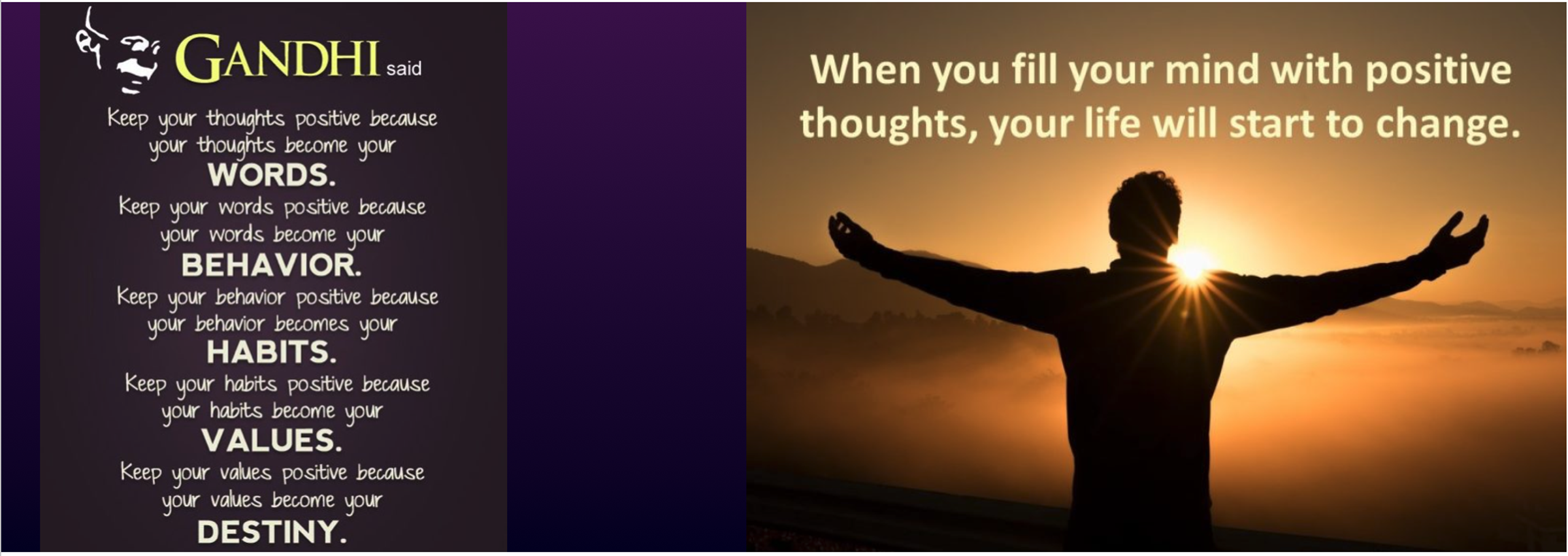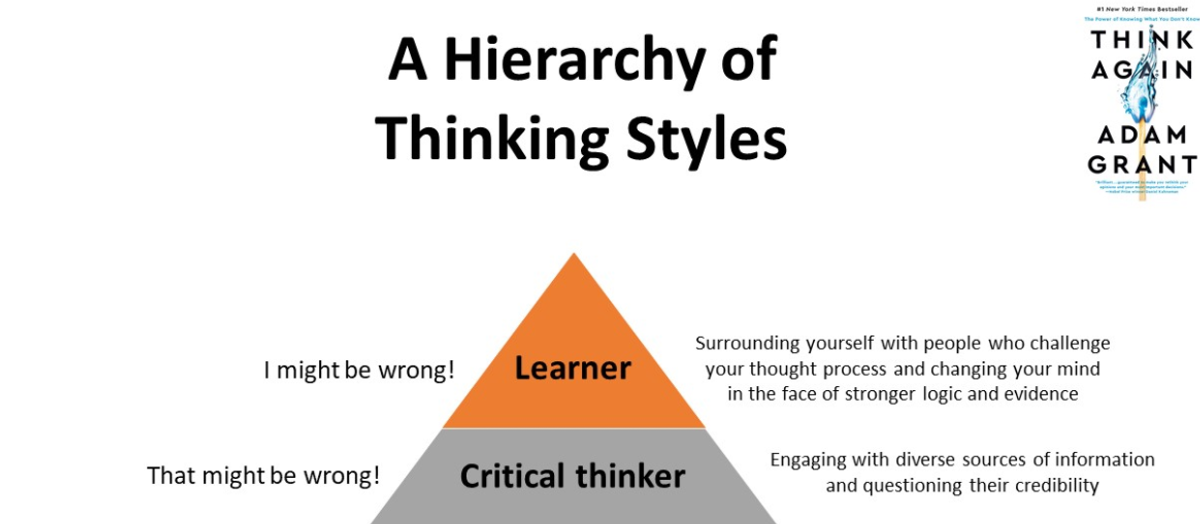Thought For The Week:

Changing our opinion is never easy. Confirmation bias makes it even harder. This is where we subconsciously seek out information that confirms what we already think or believe.
I am as subject to this as anyone, and can definitely be guilty of this. Being aware this is an issue means I do try hard to have an open mind, to be open to new ideas and information, and see and consider other viewpoints. In other words, I try to be a learner.
I can think of a couple of times - at least - where I have had my eyes opened to additional points of view, and needed to publicly apologise as a result.
According to this hierarchy, being a learner is our ultimate goal and achievement.
Back in my day - what a trite phrase - learning was all about giving the right answers. Getting good grades depended a lot on how good your memory was.
Now we are much more focused on learning that focuses on asking good questions.
A good question can excite, disturb, or comfort, and eventually yield an unexpected treasure of understanding and critical awareness.
We live in a world that values answers. We were taught in school to learn how to answer questions in exams. We were conditioned to go to work knowing that we need to have the answers and our society, by and large, focuses on finding the solutions rather than figuring out if we are asking the right questions.
Questions and answers are by definition linked together but they are a very different skillset. Seeking answers is a process of elimination through research and experimentation, trying to piece together different information and narrow things down to a solution. But asking questions is a process of expansion through critical thinking and imagination.
It is understandable why as a society we don’t value the cost of asking the right questions because in some way the more questions we ask, the more work we need to do and the further away we are from finishing what we need to do. This creates a systemic problem favouring short-term patches over long term solutions.
You can't expect to wake up one morning and run a marathon without training. Similarly, asking good questions is a skill that requires practice, training, and mentoring. If a child (or adult) is placed in an environment that does not encourage active questioning, then that skill will not become an active habit of mind.
By asking questions, we naturally improve our emotional intelligence, which in turn makes us better questioners—a virtuous cycle.

